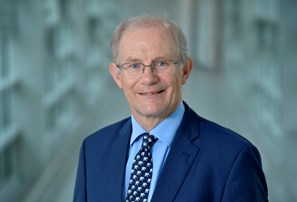
Sign in to access your HIS profile below.

As you will know if you have attended previously, the Federation of Infection Societies (FIS) International conference is a unique event – a collaboration between societies across the UK with interests in different aspects of infectious diseases, clinical microbiology, biomedical science and infection control.
 |
The 2020 FIS conference will be hosted by HIS. Our President, Professor Hilary Humphreys said, “We are proud that the event provides an invaluable source of education, inspiration and networking opportunities to healthcare professionals with an interest in healthcare infection diagnosis, treatment, prevention and control.” 2020, as we are all too aware, has been an extremely challenging year with all facets of life changed by the COVID-19 pandemic. This blog will take you behind the scenes with the FIS|HIS planning team to see how FIS|HIS International 2020 was affected by the pandemic and what we did to ensure the event could still happen. |
| Professor Hilary Humphreys |
|
The planning for any FIS conference starts a couple of years in advance. FIS conference is on a regular rotation between the host societies, with FIS|HIS running successfully every four years. Recent FIS|HIS Conference venues include Liverpool in 2012 and, more recently, Edinburgh in 2016 – I am sure many HIS members have great memories of these conferences. As part of the initial planning for FIS|HIS 2020, we contracted the EICC in Edinburgh in early 2019. Signing the contract acted as a catalyst for the planning to properly commence. As you can imagine, organising such a large, collaborative event takes a huge amount of time and planning. Not only is there the coordination between the host societies, but there are also sessions on the programme from the wider FIS participating societies – in 2020 we will have sessions organised by 16 different FIS societies and organisations. |
FIS|HIS 2016 |
In addition to the complex programme planning, there are the wider event logistics such as organising and coordinating the speakers, social venues, hotels and suppliers. There is the development and launch of the sponsorship and exhibition opportunities, as well as the creation and testing of the registration and abstract systems and their subsequent marketing.
Everything was progressing as planned and the conference was launched on schedule in November last year at FIS 2019 which was run by a fellow host society, the Microbiology Society. However, then things changed!
In early 2020, the enormity of the COVID-19 pandemic became clear: at that point, the planning and promotion for FIS|HIS 2020 was firmly placed on hold. The thought of holding a face-to-face conference later in the year for over 1,000 international participants felt like an impossibility.
Having said that, what was very apparent early on was how vitally important it would be to continue to deliver education and facilitate networking between the key FIS audiences. With that in mind, we started to explore options for the conference.
By mid-2020, we had a clearer picture of the year ahead. It was at this point, with the threat of a second wave later in autumn and the likely continued restrictions on mass gatherings and international travel, that real consideration was given to how the event could be delivered virtually.
With the cooperation of the FIS Societies and event suppliers, we started adapting a face-to-face event into a virtual event. This required a huge amount of coordination and planning, with the roles of all involved completely changed. For example, no longer do speakers need us to coordinate their travel or accommodation – instead they are looking for us to coordinate their session remotely and facilitate live questions from delegates on the day.
Thinking about the format of the event, and considering feedback from other virtual events, the programme has been adapted to better suit the online format; sessions and days will be shorter and longer time has been allowed for interactive, online Q&A. Posters will be presented virtually and those who have a poster accepted will be asked to provide an electronic PDF of their poster and can supply a short video presentation for display alongside. A chat button on each poster will allow delegates to type questions, thus maximising the opportunity to interact and share knowledge with colleagues virtually.
We are delighted that all those involved have embraced the challenge, demonstrated flexibility in adapting and working together to produce what promises to be an excellent event.
|
FIS|HIS International 2020 online will run as a fully virtual event from 9-11 November 2020.
We are pleased that Professor Evelina Tacconelli will deliver the first virtual Lowbury Lecture at FIS|HIS International 20 online on ‘Linking infection control to clinical management of infection to overcome antimicrobial resistance’.
|
Professor Evelina Tacconelli |